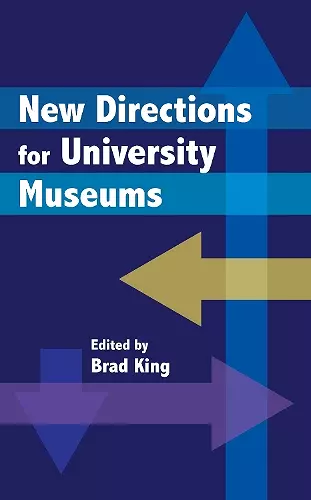New Directions for University Museums
Format:Paperback
Publisher:Rowman & Littlefield
Published:15th Dec '23
Currently unavailable, and unfortunately no date known when it will be back

New Directions for University Museums is intended to help university museum leaders to help them plan strategically in the context of the issues and needs of the 2020s by examining trends affecting them and directions in response to those forces. It will lay out a series of potential directions for university museums in the 21st century using examples from the field.
Although university museums are similar to other museums in their topic areas (art, natural history, archaeology, etc.) they are a unique category that requires special consideration. Today university museums are grappling with new forces that are affecting their future:
- University museums still have a dual responsibility to campus and community, and they still try to mount exhibitions that are attractive to the communities in which they are embedded. But they are rethinking the nature of service to town and gown in response to larger trends around accessibility. It is no longer enough to try to attract visitors; these museums are becoming much more active and outgoing in their outreach to the broader public.
- They have unparalleled access to academic firepower, but university museum research is no longer the sole province of academics, intended for publication in scholarly journals. In the 2020s, research is being made much more relevant to existential problems of the world. For example, some are bridging the gap between academic research and teaching and the most pressing social issues of our time, such as climate change, the fight against racism and the interface between humans and technology. University museum research is no longer cloistered, and these institutions are finding ways to better leverage the new knowledge yielded by collections-based research for both the university’s and for public benefit.
- Student engagement and education is still important, but communication is no longer unidirectional (from faculty and museum staff to students). Now student input and co-curation is now invited as learning becomes a two-way street. Moreover, public science communication has become a much more important role for university museums.
These are, in effect, the “new directions” to which the title refers. The main thesis of the book is therefore that university museums are becoming much more outward-facing. They are engaging with the public and with the world at large as never before. In effect,...
ISBN: 9781538157732
Dimensions: 229mm x 152mm x 23mm
Weight: 594g
375 pages